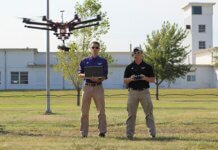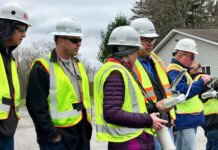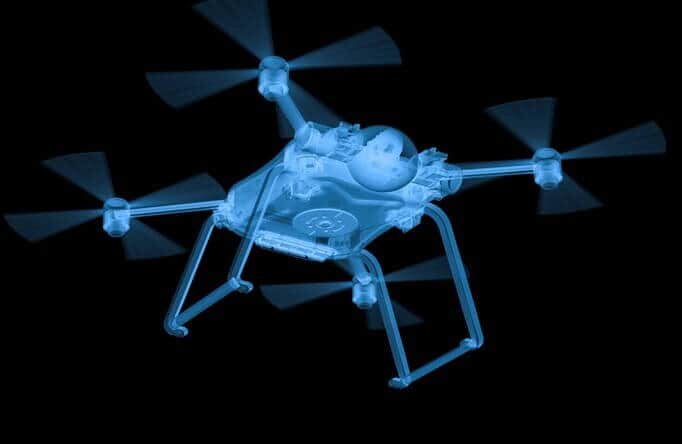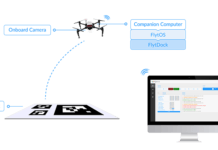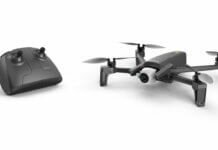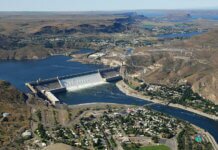The Commercial Drone Alliance (CDA) is speaking out against bicameral legislation on drone privacy that was recently re-introduced by U.S. Sen. Edward J. Markey, D-Mass., and U.S. Rep. Peter Welch, D-Vt.
The lawmakers, who rolled out the bill earlier this month, said the “Drone Aircraft Privacy and Transparency Act” aims to ensure the transparency and privacy of unmanned aircraft systems (UAS) operations. Markey and Welch proposed a similar bill in the last Congress.
According to the CDA, the legislation would create an additional layer of regulation that departs significantly from our existing technology-neutral standards. Instead, the group argues, we should apply our existing laws to protect the public – which courts have done for similar advances in photography-related technologies for decades.
Existing technology-neutral standards pertain to photos captured by handheld cameras, smartphones, telephoto lenses, helicopters and UAS – without distinction. These rules are further strengthened by prohibitions against trespassing, stalking and peeping toms, the alliance says.
Further, the CDA is concerned that the legislation would upend our “well established and robust” privacy standards and, in turn, create significant operational barriers and competition issues for even basic UAS flights.
“The legislation requires operators to make publicly available, via the Federal Aviation Administration, listings of their future operations, such as where, when and for what purpose the drone is flying,” states Michael Latiner, chief strategy officer for drone services provider Uplift Data Partners. “This requirement removes the discretion of the operator on the ground to determine the safest and most efficient flight paths and will be incredibly onerous for operators of all sizes.”
The legislation also requires the disclosure of the technical capabilities of the drone and the types of cameras and payloads an operator is using. If enacted, the bill would thus require the release of sensitive business information – regardless of whether a UAS flight creates any privacy concern, the alliance explains.
The disclosures would also create a significant administrative burden for UAS operators and the federal government, which would need to accurately and appropriately maintain, use, protect and share this information – without a clear sense of how this information will meaningfully protect the public, the group adds.
“The integration of drones into our national airspace will save countless lives and have a significant economic impact here in the United States,” notes Gretchen West, co-executive director of the CDA. “Adding more regulations or special permissions to operate drones would further stifle the benefits of their use and may lead companies to shift business overseas.”
“To the extent the bill’s authors would like to see new drone privacy standards, an immediate option would be to support the voluntary best practices,” adds Lisa Ellman, co-executive director of the alliance. “These were agreed to by many members of industry and civil society last year as part of the National Telecommunications and Information Agency’s (NTIA) multi-stakeholder process on UAS privacy, transparency and accountability.”
These privacy best practices set agreed-upon boundaries for UAS operations, the alliance says. These include avoiding the collection of data when the drone operator knows a person has a reasonable expectation of privacy and avoiding disclosure of personal information when it is not necessary to fulfill the stated purpose for which the drone is used.
Before Congress enacts new regulation, these best practices should be given an opportunity to be introduced to the general public, the alliance argues. Allowing these practices to succeed would be consistent with the goals of the NTIA’s multi-stakeholder process, which sought to find the right balance between privacy regulation and the continued development of the drone industry.
Finally, the CDA says it is troubled by the legislation’s implications for the First Amendment to the Constitution: By potentially requiring journalists to provide prior notice of the specific locations where UAS will be deployed, the bill would create a set of requirements that jeopardize journalists’ First Amendment rights.
The alliance says it looks forward to working with Markey and Welch to help further educate the public about UAS and privacy.
Founded last year, the CDA is an independent, nonprofit group co-located in Silicon Valley and Washington, D.C. Its overarching vision is to support commercial enterprise end-users and assist them with adopting drone technology into their businesses.



